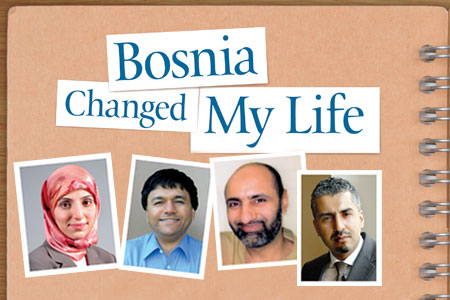
Bosnia Changed My Life
Issue 91 April 2012
The persecution of Bosnians—fair-skinned European Muslims—had a deep impact on many young British Muslims. Some raised money to help, others became community activists, and some even went to fight. emel meets four people for whom the war in Bosnia was a defining moment.
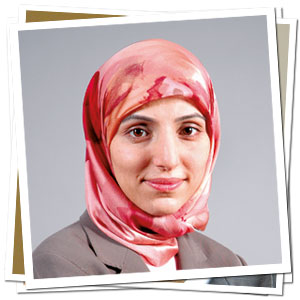
Salma Yaqoob
I feared for our future, I counselled the victims, I went into politics.
When I first heard about Bosnia, I was not involved in any political campaigning. What really resonated with me was hearing about people in Europe who were native to their land being persecuted for being Muslims. I had studied the Holocaust in great detail when I was younger, and read about the horrors of the concentration camps, and so I was shocked to see it was happening now.
I was predominantly involved in helping charities run fundraising drives for the Bosnians, and I actively encouraged people to donate to the cause. Towards the end of the war, I was doing some counselling and we had people coming over from Bosnia who had been through some horrendous experiences. I thought that I might be able to put my skills to good use, so I went to America to do a specialist course. It was very humbling to see the people’s strength and dignity in how they were making positive steps out of the extreme hardship they had undergone.
What happened in Bosnia also illustrated how powerful words can be, and how quickly things can change. These communities of Bosnians and Serbs were living together for a long time, yet they were turned upon so quickly. When 9/11 happened, we in Britain felt the atmosphere change and Muslims increasingly fell under the spotlight. We were having conversations about whether what happened in Bosnia would happen here, and with all the hatred being thrown around, there was a real fear. Unlike the Bosnians, we were immigrants with added differences that extremists could exploit, and at the time we only had to think ten years back to recall what had happened in Europe.
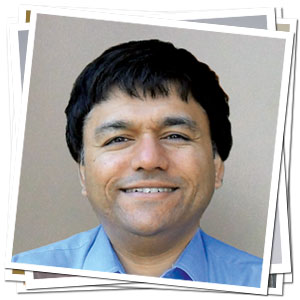
Naved Siddiqi
I studied Islam, I did charitable work, I became more active with the ISB.
It is difficult to put into words quite how Bosnia impacted my mind, for it felt like a constant restlessness gnawing away at my very soul. I describe it in such unseen terms because, outwardly, I had everything. There was so much to be thankful for, to enjoy and look forward to.
In my early twenties, I had entered my prime. I was independent, healthy, working for an industry leader, I already owned my own home, had found love and, like all Thatcher’s children, I was armed with credit cards. Then began an emotional turmoil that surged forward, unabated. It began to underpin everything my life was and where it was heading, questions ringing constantly in my head: What is the point of my being? Where should I be?
I was a European Muslim, so were my Bosnian countrymen; I was integrated, they were more so; I was systematically building my life, theirs were being systematically destroyed; I had found love with a beautiful young lady, Bosnian women were being brutally raped; I came home to a family dinner, their family members were being buried two hours from my home; I could listen to music, or I could listen to recordings of their death in the killing fields. My life was on the up, but inside, it was one of a quiet desperation. What to do, or not to do, that was the question!
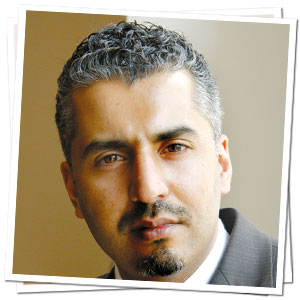
Maajid Nawaz
I discovered my identity, I worked to bring back the caliphate, I now direct the Quilliam Foundation.
During the late 1980s and early 90s, I would have described myself as non-religious, and not politically active in any shape or form. I did have many grievances with society, especially the way I was discriminated against, but these were mainly framed in race relations terms because I had been a victim of racial violence and armed racist attacks. But Bosnia changed everything for me. I saw the persecution of white, blond-haired and blue-eyed European Muslims, solely on account of being Muslim, and my views were completely shaken up.
It made me realise that it did not matter if your skin colour was the same, you could still be discriminated against on the basis of your religion. I protested against this injustice by becoming radicalised, which led to me taking on identity politics in a reactionary way that overemphasised my own Muslim identity. This was a conscious shift on my part—I had gone from British Asian to becoming a British Muslim, and had joined a group that supported Islamism, or Political Islam, to express this.
In those days, there were no mobile phones, let alone smartphones, so we had two ways of finding out about what was happening in Bosnia. The first was mainstream news, where we were told a vague story of the events that were unfolding, and the second was video recordings from people who had gone out to Bosnia to join the guerrilla forces and fight against the genocide. This would fill in the details that the mainstream media could not provide, and we would play these very graphic recordings of the mutilated bodies of Bosnian Muslims to young Muslims in order to engage them and persuade them to join our cause. In a way, we were using Bosnia as a catapult to self-segregate Muslims, in order to make them more aware and reactionary.
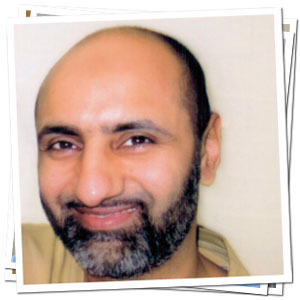
Babar Ahmed
I went to fight, I got injured, now I’m in prison because the Americans want me.
When war broke out in Bosnia in April 1992, I was a 17-year-old A-level student still at school, who used to volunteer in a local youth club on the weekends. I was living an unremarkable life.
One day, I saw a news report showing skeletal Bosnian men in the Omarska concentration camp. This triggered a flashback to what I had studied about the Holocaust at school. I had thought that such horrors no longer happened in the world, but now I could see history repeating itself before my very eyes. I spent many sleepless nights thinking about those images. Eventually, I decided to go there myself. I did not want to be one of those people who turn their backs when they witness an injustice.
In the winter of 1992, I made my first trip to Bosnia. I was 18 years old and had just started university. I joined local charities and helped to take food and medicine from Croatia to Bosnia. When I arrived in Bosnia and travelled around the country, I saw things that left a deep impact on me. I visited towns in which every house and mosque had been flattened. I went to orphanages and refugee camps where thousands of people were living in squalid conditions. However, it was when I heard the stories of women held in rape camps being forced at gunpoint to eat the bodies of their babies, that I decided to do more. I did not want to give food and water to women being gang-raped. I wanted to stop it happening.
Bookmark this |
|
Add to DIGG |
|
Add to del.icio.us |
|
Stumble this |
|
Share on Facebook |
|
Share this |
|
Send to a Friend |
|
Link to this |
|
Printer Friendly |
|
Print in plain text |
|

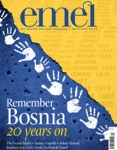
Comments
0 Comments